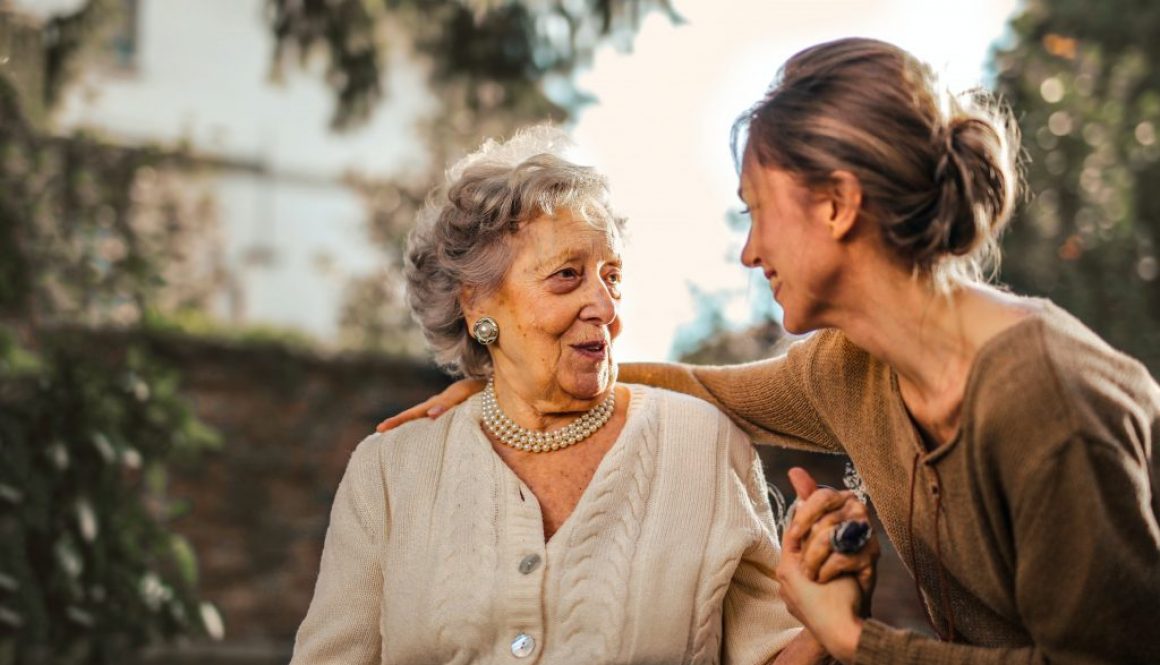9 Parts of a Great Life-Care Plan
Planning dominates our lives. That’s a good thing. We plan our careers and retirement. We plan our kids’ upbringing and education. We plan our weekly grocery list. We plan the family trip to Disney World. But, regrettably, most people think about building a great life-care plan too late or not at all.
So what’s a life-care plan? It could be one of the most vital plans you ever make. Not that those mentioned (and countless others) aren’t important. But planning for later in life – for good times and bad; in sickness and in health – puts affairs in order and honors your loved one’s needs and wishes.
We build plans that ensure your loved one maintains control or keeps the decision-making as close as possible. We emphasize being loved; meeting all care needs; having financial security; and creating a life of joy, happiness and comfort until the end … and beyond.
What Should a Life-Care Plan Include?
A well-made life-care plan should include these 9 basic (and not-so-basic) elements. It’s a formal document that breaks down what will be done, when, why and by whom. It factors everything that needs to happen for your loved one as they navigate the uncertainties of advancing years, health conditions, financial and legal realities, and end of life.
Sounds authoritarian, right? “Do this.” “Do that.” “Don’t do that.” Not exactly. It should be flexible. It should anticipate changing realities, needs and wants over time. Care partners and responsibilities may change. Unanticipated medical diagnoses may arise. Even fortunes can reverse almost overnight.
So let’s build a foundation on these life-care planning principles and leave enough wiggle room for details to change later.
1. Person-Centered Language & Care
Let’s begin here because words alone can help – or hurt. The language of your life-care plan must be what we call “person-centered” or “person-focused.” Words can empower the care recipient or relegate them to a weakened position of vulnerability and helplessness.
Don’t believe me? Check it out:
- Caregiver vs. care partner – Caregiver assigns a position of authority over the individual’s care. Care partner levels the playing field, allowing the individual at the center of care to advocate for their needs and wants as an equal.
- “Alzheimer’s in 34F” vs. Melissa – Professional care staff have too long referred to individuals by their diagnoses instead of their actual names. But she’s (insert name here) and is a person with a story beyond her medical condition.
- Patient vs. resident – Another identification misnomer. The word “patient” carries a helpless connotation of someone dependent on a facility or another person for care. A resident simply lives in a location and directs their own care from that “home,” wherever it may be.
You see, it’s more than just a positive outlook or worldview. Words alone support a more effective and fulfilling person-centered care structure. Person-centered care values the individual as a full and capable member of society, honors their perspective and wishes, evolves alongside changing needs, and supports a life worth living.
2. Care-Partner Team
We build care-partner teams to include individuals chosen by your loved one. Members may consist of family, friends and professionals. The partnership is characterized by mutual cooperation and joint responsibilities. There are opportunities to give (and receive) care by all parties in this partnership:
- An adult child may pay your loved one’s bills and balance the checkbook.
- A neighbor may stop by periodically with meals.
- A brother or sister may assist with bathing and medications.
Your care-partner team may also include both traditional and non-traditional care methods. Some families prefer support in accordance with religion and faith, with a clergy member, lay leader or other religious/spiritual adviser serving a central role.
3. Patient Advocacy
Moving ahead with the life-care plan, patient advocacy is your one-stop shop for EVERYTHING your loved one and care partners need. As a Board-certified Patient Advocate in the State of Florida, I work with care-partner teams to advise and coordinate resources needed for every step of the care journey.
Our loved ones face many important decisions. You need an experienced patient advocate who knows each required step for your loved one’s physical, emotional and financial well-being.
(Which segues nicely to our next points.)
4. Medical Needs
Good health is a luxury. Some of us are very fortunate. Our loved ones may be in very good health well into their 80s or 90s, only to experience a quick-and-unexpected, life-threatening emergency. They may be diagnosed early with a terminal illness like Alzheimer’s or another type of dementia that for years deteriorates memories and cognitive abilities before your very eyes.
No matter your loved one’s health, we must hope for the best and plan for the worst. Your life-care plan should factor anticipated health and dietary needs in both good and poor health.
5. Financial & Legal Needs
And then we must anticipate who will make legal and financial decisions if your loved one becomes incapacitated. Ideally, they will plan early to have official documentation prepared for “when the time comes.” It’s more than “who gets what” or who “chooses to pull the plug.”
Needs may include:
- Medicaid and VA planning (with asset protection)
- Estate planning
- Living will (or advance directive)
- Power of attorney
- Health care proxy
- Last will and testament
Get it in writing! Get it done early, when everyone has a cool head about the future.
6. Living Situations
OK, so we all want to age gracefully at home – at least as long as possible. But quite often, medical (and sometimes financial) realities compel us to perhaps downsize to a more manageable home or enter assisted living.
A strong life-care plan spells out where your loved one will reside, when and why. It should have a Plan A and as many contingencies as necessary to factor both anticipated and unforeseen variables. For instance, Plan A may be that your mother and father live at home, but Plan B might include options for Mom entering a specific memory-care facility if/when her dementia takes a turn, while Plan C mobilizes home-care resources for Dad remaining at home before moving to join her in Plan Z.
7. Community Resources
Great care sometimes takes a village. While care begins at home, our home communities often can support our care needs in more ways than one. Community care options, including professional agencies, may perform a variety of services including
- Home care and other medical assistance options
- Respite care
- Counseling for the individual and other care partners
- Real estate
- Spiritual and faith-based care
- Living transitions and logistics
- Legal planning
- Even cleaning and cooking
As part of our patient advocacy and life-care planning, we provide referrals to great resources in the Tampa and Clearwater, FL areas to relieve burdens on stressed families.
8. End-of-Life Care
It’s a certainty. We all face a date with the end. And while some of us will be lucky enough to pass in peace, the reality is that death for most people can be a lengthy, uncomfortable process. Even if your loved one is healthy, their body will likely shut down in the end stages. They’ll lose appetite and weight and the organs will begin to shut down – sometimes quite painfully.
That’s why hospice care is a great resource for individuals expected to live six months or less, providing comfort and support at end of life. For those expected to live a bit longer in a debilitating condition, palliative care provides many of the same comfort services.
9. After Care
And then it’s all over. Whether your loved one passed expectedly in peace and dignity or if they struggled mightily, the death experience can be jarring for everyone involved. Close family and friends understandably feel emptiness and sorrow. Sometimes only counseling can work through such strong emotions.
But there are often other pressing matters including memorial services and other final arrangements, as well as financial and legal responsibilities to fulfill. Alongside our community partners, we provide direct after-care support and referrals for whatever you may need.
Let’s Build a Life-Care Plan for a Life Worth Living
As a professional life-care planner and a Board-certified Patient Advocate, I assist individuals and their care-partner teams every day. And then I come home to fulfill our life-care plan with my life partner/care partner, Brian. If you need help, Caregiver Support and Resources, LLC can help you from beginning to end.


